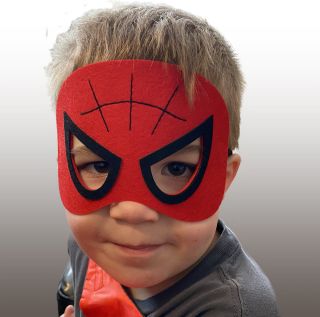Anxiety
Whew!
Rx for dodging the effects of dire news: dogs and grandchildren.
Posted August 15, 2023 Reviewed by Hara Estroff Marano
Key points
- Concerned earthlings find dodging bad news nearly impossible.
- Doomscrolling leads to anxiety.
- Playing with grandchildren yields mental health dividends.
- Playing with dogs boosts feel-good hormones for both humans and pets.

To sample the headlines from even a single day now risks a slide toward despair. Here are just a few recent developments.
A Litany of Disaster
As the climate warms dangerously and even semitropical waters begin to feel like a hot tub, the planet catches fire. People a thousand miles away smell Canadian smoke. Meanwhile wildfires on flaming Greek and Hawaiian Islands drive residents and tourists to seek refuge in the water. Another tragic incident commands attention: as an undersea excursion company’s owner pilots his under-engineered submersible into the deep, the world hangs on news of the fate of his passengers. At the same time, television reports detail how an ex-President, charged with more than six dozen felonies, menaces prosecutors, possible witnesses, and potental jurors, declaring “if you go after me, I’m coming after you.” And then, halfway around the world, a revanchist autocrat who embarked on a ghastly killing and child-kidnapping spree in a neighboring state casually entertains the prospect for nuclear escalation.
Up to Date and On Edge
Even if it were morally decent to ignore such enormities and outrages, concerned earthlings find dodging bad news nearly impossible. Keeping current responsibly, though, can keep us on edge emotionally.
Hooked on a cortisol buzz that such dreadful information delivers (a roller coaster carries a similar kick, but pleasurably) over-avid news consumers— doomscrollers invite not only loss of perspective about personal risk, ironically, but also a damaging descent into anxiety and depression.
Doomscrolling is a kind of anti-play, denying those so compelled the sense of poise and balance that play often stimulates.
Play as Remedy
With this downhill slide in mind, two remedial and heartening news items caught my eye. The first explored the benefits of playing with grandchildren, the second noted the mutual dividends of petting a dog—anybody’s dog.
First the grandchildren. We recently had the pleasure of minding two, a four-year old and a toddler, both boys, over a five-day span that turned into an extended improv workout.
Monster Trucks, Dinosaurs, and Superheroes
The older brother had progressed through three typical preoccupations in sequence: first Monster Trucks, then Dinos, then Superheroes. (Superhero action figures, Superhero videos, Superhero books, and Superhero masks and capes for fantasy role-playing.) The year-and-a-half old toddler, busy piling on vocabulary and mobility, had just begun with Trucks. This word stuck on the diphthong and so came out as “ruch” more or less. "Ruch" applied generically to toy ambulances, race cars, tractors, excavators, road graders, tankers, biplanes, locomotives, and ships.
What would Captain America Do?
The play narratives that emerge from these stages are fun, funny, physically engaging, and cognitively enriching. Trucks roll and zoom. Dinosaurs roar and stomp. And Superheroes? Well, yes, they leap tall buildings, shoot spider webs from their wrists, spy a little brother through a thick sofa, scatter monsters, shift their shapes, breathe underwater the way fishes do, read minds, and fend off attacks with shields.
Of course, this isn’t just one-way play and passive grandparental observation. If you can’t find a mutually delightful and empowering story that these abilities afford, you need only ask “what would Captain American do?”
On the physical side, romping and tickling and startling and chasing and wrestling and bouncing on a knee and dandling on a foot need no toys and no props. Still, they thrill the toddler, fascinate the preschooler, and amuse the oldster. And if your grinders wake early and storm your bedroom, the day can begin with a comical pillow fight that nourishes and strengthens a wholesome bond. Add a puppy to the mix and you can enjoy hilarious chaos in mock battle.
The benefits accrue beyond momentary hilarity. One cross cultural review of the relevant United States literature on the intervals that researchers call "complementary caretaking," concluded, reasonably, that looking after grandchildren "provides [grandparents] with emotional gratification, a sense of belonging, attachment and usefulness which in turn may enhance health and life satisfaction." (Grinstead, et. al. 2003)
Pet a Dog, Any Dog…
So. On to the dogs. Recent research revealed that the simple act of petting man’s best friend, or even rubbing the tummy of some other human’s best friend, racks up benefits sometimes grouped as the “Lassie effect.” These include boosting the so-called “feel good” hormone oxytocin, reducing stress hormones (cortisol again) and so elevating mood, lowering blood pressure, cutting the risk of cardiovascular disease, alleviating loneliness, and easing the symptoms of post-traumatic anxiety.
Unsurprisingly, dogs derive similar benefit from a tummy rub or a scratch behind the ears.
As for dog-walkers, they get to lower their cholesterol levels, control their weight, exercise their muscles, and help curb several medical conditions including arthritis and diabetes.
According to findings published in the interdisciplinary journal Health and Place, dog-walkers are less sedentary than others and so have a better chance to meet the 150 minutes of exercise per week that physicians recommend. Dog-walkers find more social opportunities, too. They may forget the names of the humans they meet on a walk, but they likely remember Rocky, Sadie, Corky, Luna, Oliver, and Fergus
Tug a Rope, Toss a Frisbee
But go one step further and play with a dog—tug a rope, toss a Frisbee, squeak a squeak toy, hide a treat, tag a paw, or teach a trick—and you’ll engage the kind of fun that you’ll have with your toddler or preschooler. Except, because dog reaction times are roughly three times swifter than humans', you’ll play at blinding speed.
Luckily, when dogs play with us, they play fair. They learn to allow for our poky ways, and they self-handicap, thoughtfully.
Imitate a “play bow” with a dog—bend from your waist or get down on all fours and stretch forward—and this potent play signal will nearly always draw a playful response.
Play Is Enabling
I cite these two news items about playing with kids and dogs not as a call for quietism or denial of the world’s urgent issues. Much the contrary, in fact.
And here let me cite a telling historical example. John F. Kennedy’s young children, Caroline and John John, became fixtures of the Oval Office, routinely lifting the mood and so facilitating day-to-day Presidential decision-making.
Even more remarkably, during the Cuban Missile Crisis that in 1962 brought the world to the brink of nuclear conflict, President Kennedy, pressed for a verdict about how to proceed as the Russian fleet bore down on the island, called for his trusty Welsh terrier, Charlie, to be brought to his side. According to reports, after a few minutes of rough-and-tumble, JFK returned more composed, and said with a resolute smile, “I suppose it’s time to make some decisions."
References
Maria Godoy, Weekly Dose of Wonder, “Petting Other People’s Dogs, Even Briefly, Can Boost your Health,” radio broadcast, NPR, (August 3, 2023); Kersten Meintz, Nancy Gee, et. al, “Can Dogs Reduce Stress Levels in School Children,” PLOS, (June 15, 2022).
Bob Brody, “Want to Live Longer? Play with your Grandkids: It’s Good for them Too,” Washington Post, (August 6, 2023); Linda Nicholson Grinstead, Sharon Leder, Susan Jensen, and Linda Bond, "Review of Research on the Health of Caregiving Grandparents," Journal of Advanced Nursing, (October 20, 2003); Giorgio DiGessa, Karen Glaser, Anthea Tinker, "The Impact of Caring for Grandchildren on the Health of Grandparents in Europe: A Lifecourse Approach," Social Science and Medicine, (March, 2016).
Val Walker, “A Doomscrolling Self-Assessment,” Psychology Today, (May 31, 2023); Phil Reed, “Doom-scrolling and the Manipulation of Anxiety: Why Social Media Makes You Anxious,” Psychology Today, (December 9, 2022).




